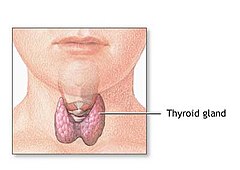Introduction
Did you know that untreated hyperthyroidism, often caused by Graves’ disease, can lead to life-threatening complications such as cardiovascular disease, vision impairment, and osteoporosis? According to the American Thyroid Association, millions of people suffer from hyperthyroidism and fail to recognize its dangers until it’s too late. This article will highlight the symptoms, health risks, and management strategies for hyperthyroidism, emphasizing the importance of early detection and intervention. We will discuss how hormone
imbalances impact the entire endocrine system, leading to serious issues such as heart complications and weakened bones. Additionally, we’ll explore the role of natural supplements in supporting thyroid health. Certain nutrients, such as selenium and sodium (Na), may aid in balancing thyroid function, but they should be used cautiously and under medical guidance to ensure safety and effectiveness. Understanding these aspects can empower individuals to take proactive measures to safeguard their well-being and prevent irreversible damage.
Would you like to know more about warning signs of serious health problems? Discover more in our post: 7 Early Signs of Medical Conditions You Shouldn’t Ignore
Order Your thyroid Support Supplement Today!
The Most Common Cause of Hyperthyroidism: Graves’ Disease
Graves’ disease is the leading cause of hyperthyroidism, accounting for the majority of cases worldwide. This autoimmune disorder occurs when the immune system mistakenly attacks the thyroid gland, causing it to become overactive and release excessive amounts of thyroid hormones. According to The American Thyroid Association, this overstimulation disrupts normal metabolic functions, accelerating the heart rate, increasing body temperature, and significantly impacting overall health. As a result, individuals with Graves’ disease often experience symptoms such as anxiety, rapid weight loss, and heat intolerance.
Beyond metabolic disturbances, Graves’ disease poses serious long-term health risks if left unmanaged. The American Thyroid Association emphasizes that untreated Graves’ disease can lead to severe cardiovascular complications, like atrial fibrillation and congestive heart failure. Additionally, the excess thyroid hormones can cause eye-related issues, known as Graves’ ophthalmopathy, leading to discomfort and vision problems. Addressing Graves’ disease early through medical intervention is crucial to minimize these risks and maintain a balanced, healthy lifestyle.
I would like to read more about the symptoms of autoimune disorders
What is Hyperthyroidism and Its Dangers

Hyperthyroidism occcurs when your thyroid gland produces an excess of thyroid hormones(triiodothyronine (T3) and thyroxine (T4)which accelerates your metabolism and impacts various bodily functions. The National Institutes of Health (NIH) notes that if left untreated, hyperthyroidism can cause severe health issues, including heart failure, bone density loss, and even psychological disorders. The longer this condition remains unmanaged, the higher the risk of developing irreversible damage to vital organs. This underscores the importance of understanding and addressing hyperthyroidism promptly.
Ignoring hyperthyroidism is a dangerous gamble that could result in catastrophic health consequences. For instance, an overactive thyroid increases your body’s metabolic rate, placing undue stress on your heart and bones. Untreated cases often lead to atrial fibrillation, a condition that can elevate the risk of stroke and heart attack. Additionally, hyperthyroidism can trigger severe mood swings and anxiety, affecting your mental well-being. Awareness and timely medical intervention are key to preventing these irreversible complications.
Understanding the Thyroid Gland and Hyperthyroidism
The thyroid gland is a small, butterfly-shaped organ located at the base of your neck, but it has a massive impact on your body’s metabolic processes. According to the Cleveland Clinic, the thyroid controls how your body uses energy and regulates many functions, including heart rate, muscle strength, and cholesterol levels. When the gland becomes overactive, it releases excessive hormones that disrupt these functions, leading to hyperthyroidism and putting immense stress on your cardiovascular system.
Understanding the thyroid gland’s role is crucial because it influences almost every organ in the body. An imbalance in thyroid hormones can lead to significant disruptions, causing your heart to work harder and your muscles to weaken over time. Moreover, cholesterol imbalances can develop, affecting your overall metabolic health. Recognizing the link between thyroid function and systemic health can help individuals appreciate the urgency of managing hyperthyroidism before it leads to permanent damage.
Health Risks of Untreated Hyperthyroidism
Untreated hyperthyroidism can have devastating effects on your health. One major risk is the development of cardiovascular complications, such as atrial fibrillation—a type of irregular heartbeat—which can significantly increase the risk of stroke and heart failure. The Endocrine Society emphasizes that excess thyroid hormones overstimulate the heart, leading to hypertension and other serious conditions. Additionally, bone health suffers as excessive hormones cause bones to lose calcium, making osteoporosis more likely. Psychological effects, such as severe anxiety and mood swings, are also common.

Beyond cardiovascular and bone complications, hyperthyroidism can lead to muscle weakness and significant weight loss, which further exacerbate health problems. The endocrine system’s imbalance caused by excessive thyroid hormone production can weaken the body’s ability to regulate energy and stress. This hormonal upheaval has a cascading effect, impairing kidney function and even
disrupting insulin metabolism, which may elevate diabetes risk. Addressing hyperthyroidism early on is essential to prevent these interconnected health challenges from spiraling out of control. Learn more about diabetes risk here!
The Link Between Hyperthyroidism and Hypertension
There is a well-documented link between hyperthyroidism and hypertension. Want to learn more about hypertension? Click here for detailed insights. The thyroid gland releases excess hormones, it speeds up your heart rate and increases cardiac output, leading to elevated blood pressure. This relationship, as highlighted by The Mayo Clinic, places significant strain on the cardiovascular system and raises the risk of developing heart disease. Hypertension often goes hand in hand with hyperthyroidism, making early screening and treatment crucial to prevent complications.
The connection between hyperthyroidism and high blood pressure can have long-lasting effects. Persistent hypertension can damage blood vessels, placing individuals at greater risk for aneurysms and heart attacks. Furthermore, the strain on the heart can lead to an enlarged heart, a serious condition that compromises overall cardiac function. By understanding this link, individuals with thyroid imbalances can take proactive steps to manage their cardiovascular health and reduce long-term risks.
Recognizing Symptoms of Hyperthyroidism Early
Early recognition of hyperthyroidism symptoms is vital. Common signs include rapid weight loss, irregular heartbeat, shortness of breath, and persistent fatigue. Ignoring these symptoms can have dire consequences, as the longer hyperthyroidism remains untreated, the greater the damage to your body. The American Thyroid Association urges individuals to seek medical advice if they experience any of these symptoms, as timely diagnosis can prevent long-term complications.
Other warning signs of hyperthyroidism may include tremors, increased anxiety, and heat intolerance. These symptoms can easily be mistaken for other health conditions, making proper diagnosis even more critical. Recognizing the early indicators and acting quickly can prevent complications that might otherwise lead to hospitalizations or chronic health issues. Awareness and education about these symptoms can make a meaningful difference in thyroid health outcomes.
Thyroid Imbalance and the Endocrine System
The thyroid is a critical part of the endocrine system, which also includes glands like the pancreas and adrenal glands. A hormone imbalance caused by hyperthyroidism can disrupt other organs and processes. For instance, hyperthyroidism increases the risk of developing diabetes and kidney-related complications, as high levels of thyroid hormones affect insulin metabolism and blood pressure regulation. Maintaining endocrine system health is essential for overall well-being.
When thyroid hormone levels are out of balance, the body’s regulatory functions can go haywire. The pancreas, for example, may have difficulty maintaining normal insulin levels, increasing the risk of diabetes. Similarly, the kidneys may struggle to filter blood efficiently, exacerbating conditions like hypertension. Understanding the interplay between the thyroid and other endocrine glands underscores the need for a holistic approach to managing thyroid disorders.
Essential Hyperthyroidism Screenings
Routine laboratory screenings are essential for diagnosing hyperthyroidism and monitoring thyroid function. Tests like the T3 total Hyperthyroidism Lab Screening and the Thyroid Nodule Assessment and Monitoring Base Panel provide comprehensive insights into thyroid health. The National Institute of Health recommends regular screenings for individuals with a family history of thyroid disorders or those showing symptoms. Early intervention can make a significant difference in managing and treating this condition effectively.
These screenings are not only crucial for diagnosis but also for ongoing monitoring. They help healthcare providers tailor treatment plans and adjust medication dosages as needed. For those at risk, periodic lab tests can identify changes in thyroid function before severe symptoms arise. Making screening a regular part of your healthcare routine is a proactive step that can protect your long-term well-being and prevent complications.
Consider a Cardiovascular Disease and Stroke Screening to stay informed about your heart health, especially if you are at risk of thyroid-related complications.
Natural Supplements for Thyroid Health
Managing hyperthyroidism often involves lifestyle changes, diet and natural supplements. Some effective options include stress-reducing supplements, dietary vitamins, and herbs that support thyroid function. For example, Dietary & Stress Supplement can aid in managing stress and Blood Pressure Support Supplement can assist with controlling hypertension. Remember to consult your healthcare provider before starting any new supplement regimen to ensure safety and effectiveness.

Natural remedies may also include dietary adjustments, such as increasing the intake of selenium-rich foods or managing stress through mindfulness practices. Supplements like Blood Pressure Support can also help in controlling hypertension associated with hyperthyroidism. However, these should not replace medical treatments but rather complement them as part of a comprehensive health plan. Consult your healthcare provider to find the best approach tailored to your needs.
Statistical Table: Prevalence of Hyperthyroidism by Ethnic Group
| Ethnic Group | Prevalence (%) | Primary Causes |
|---|---|---|
| African Americans | 10% | Autoimmune diseases, including Graves’ disease |
| White Americans | 8% | Genetic predisposition, Graves’ disease |
| Asian Americans | 12% | Iodine-rich diet, autoimmune conditions like Graves’ |
| Hispanic/Latino | 9% | Genetic factors, stress, Graves’ disease |
| Native Americans | 6% | Low healthcare access, underdiagnosis of Graves’ |
| Native Hawaiian/Pacific Islanders | 11% | Genetic factors, iodine levels, Graves’ disease |
Source: American Thyroid Association
FAQ Section
- What causes hyperthyroidism?
Hyperthyroidism is often caused by Graves’ disease, thyroid nodules, or excessive iodine intake (NIH). - How is hyperthyroidism diagnosed?
A blood test measuring thyroid hormone levels can diagnose hyperthyroidism (Mayo Clinic). - Can untreated hyperthyroidism lead to heart problems?
Yes, it can cause heart disease and other cardiovascular issues (Endocrine Society). - What are common symptoms of hyperthyroidism?
Symptoms include rapid heartbeat, sweating, and weight loss. - Is there a link between hyperthyroidism and high blood pressure?
Yes, hyperthyroidism can elevate blood pressure (Cleveland Clinic). - What is Graves’ disease?
Graves’ disease is an autoimmune disorder and the most common cause of hyperthyroidism, where the immune system attacks the thyroid, causing it to overproduce hormones. - How does Graves’ disease affect the eyes?
Graves’ disease can cause Graves’ ophthalmopathy, leading to bulging eyes, irritation, and vision problems. - Are there risk factors for developing Graves’ disease?
Yes, factors include family history, stress, and being female, which can increase the likelihood of developing Graves’ disease. - Can natural remedies help with Graves’ disease?
While they can support overall well-being, natural remedies should not replace medical treatment for Graves’ disease. - Does hyperthyroidism affect vision?
Yes, particularly with Graves’ disease, it can lead to serious eye issues.
Key Take-Away Points
- Untreated hyperthyroidism, often caused by Graves’ disease, can lead to severe health risks, including heart complications and bone loss.
- Early detection and treatment of Graves’ disease are crucial to prevent long-term damage.
- The condition is linked to hypertension, heart disease, and eye problems, particularly Graves’ ophthalmopathy.
- Thyroid hormone imbalance from Graves’ disease impacts the entire endocrine system, affecting multiple organs.
- Laboratory screenings are vital for early diagnosis and effective management of thyroid health.
- Natural supplements may support thyroid function but should be used cautiously and never as a replacement for medical treatment.
- Maintaining a healthy lifestyle, including stress management, can help mitigate some symptoms of Graves’ disease.
Conclusion
Hyperthyroidism is a severe medical condition with potentially life-threatening consequences if ignored. By recognizing the symptoms early and seeking appropriate medical advice, you can take proactive steps to protect your health. Regular screenings, lifestyle changes, and natural supplements can make a significant difference. Always consult with healthcare professionals to determine the best course of action for your individual needs.
Consider a comprehensive TH-2 Graves Disease Screening to check for Graves disease. Order yours today!
Medical Disclaimer
The content on this website is for informational purposes only and should not be considered medical advice. It is not a substitute for professional consultation, diagnosis, or treatment. Always seek guidance from your physician, nurse practitioner, or qualified healthcare provider regarding any medical concerns.
Before starting a new exercise routine or taking supplements—especially if you have a medical condition or take prescription medications—consult your healthcare provider to ensure safety and appropriateness. Never disregard medical advice or modify prescribed treatments without professional guidance.
This article contains affiliate links: If you make a purchase through these links, I may earn a small commission at no additional cost to you. I only recommend products and services I trust.
Daily Inspiration
Inspiring Insight: Embrace the journey, not just the destination. —

Marjorie DiCarlo, M.D., Ph.D., M.P.H.
